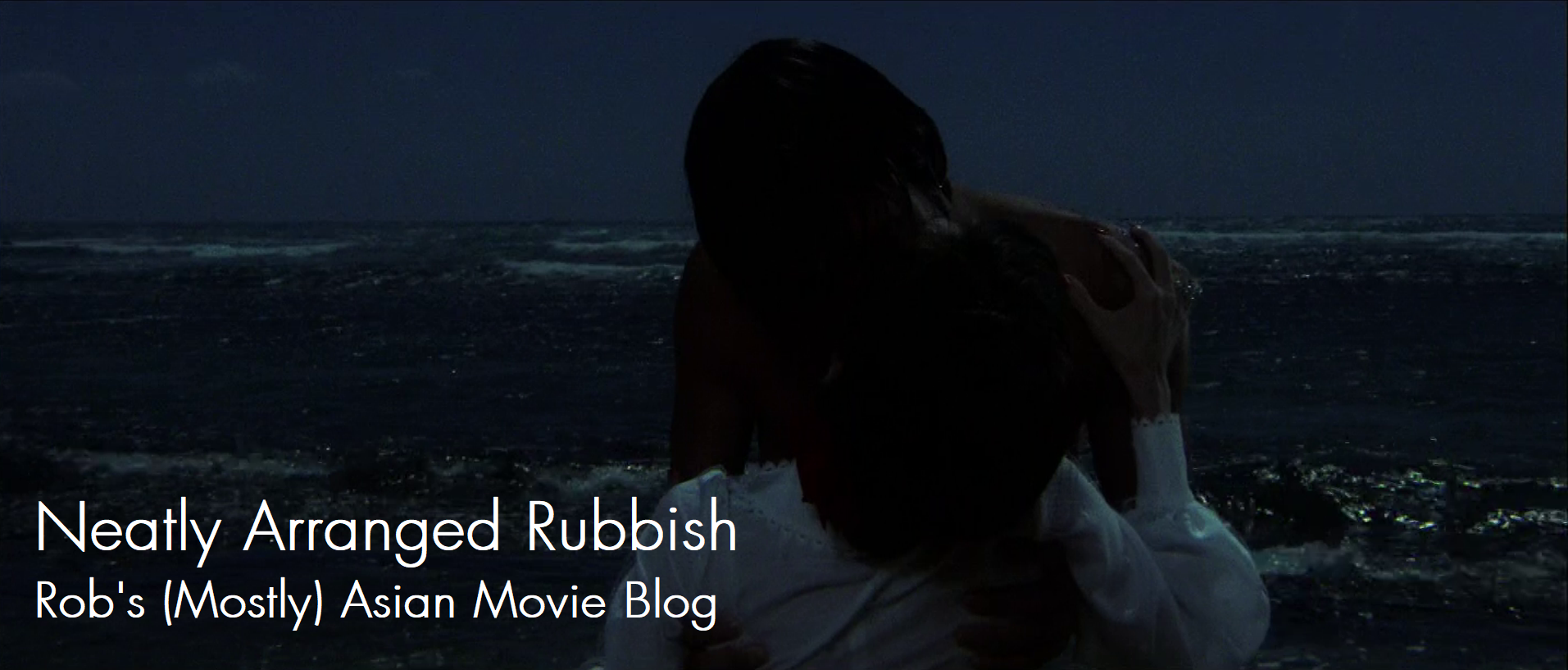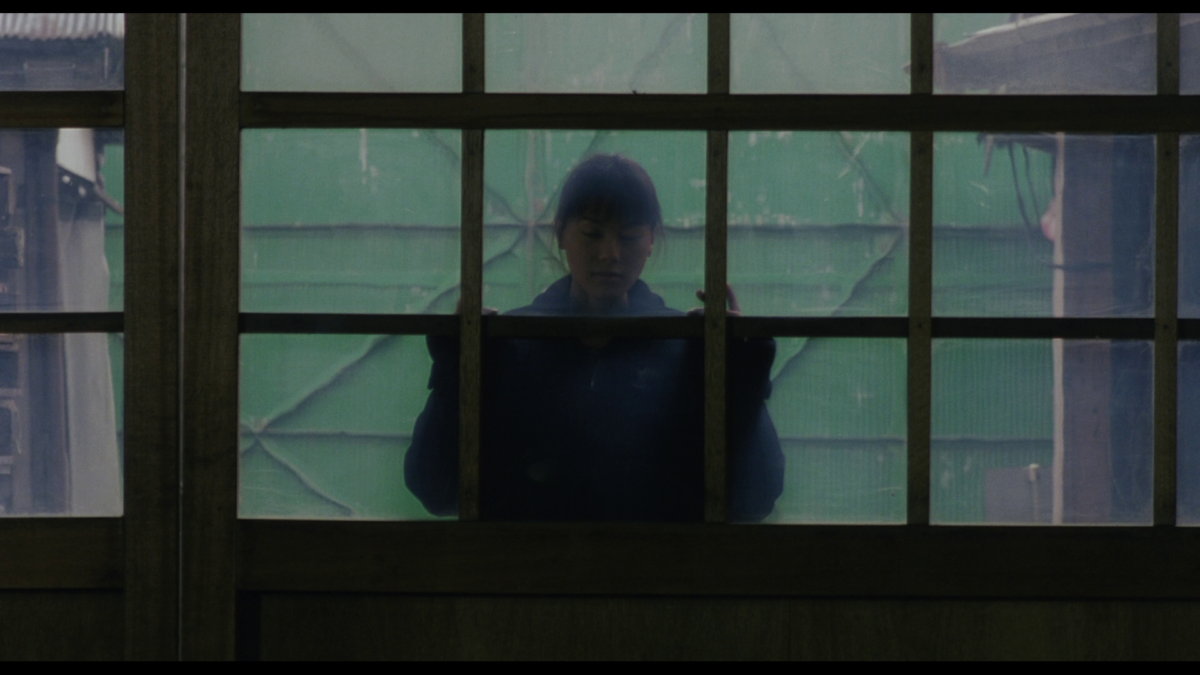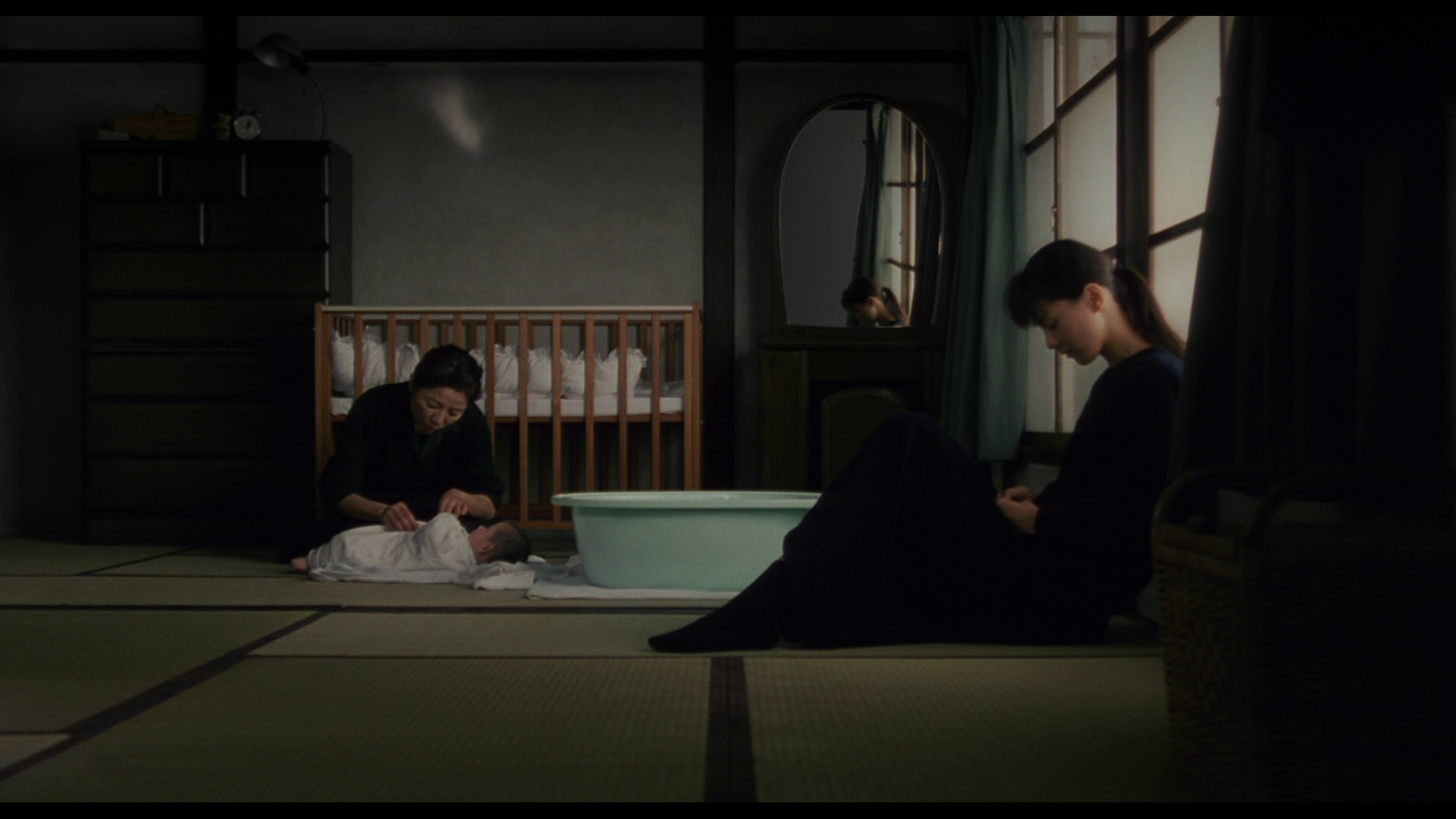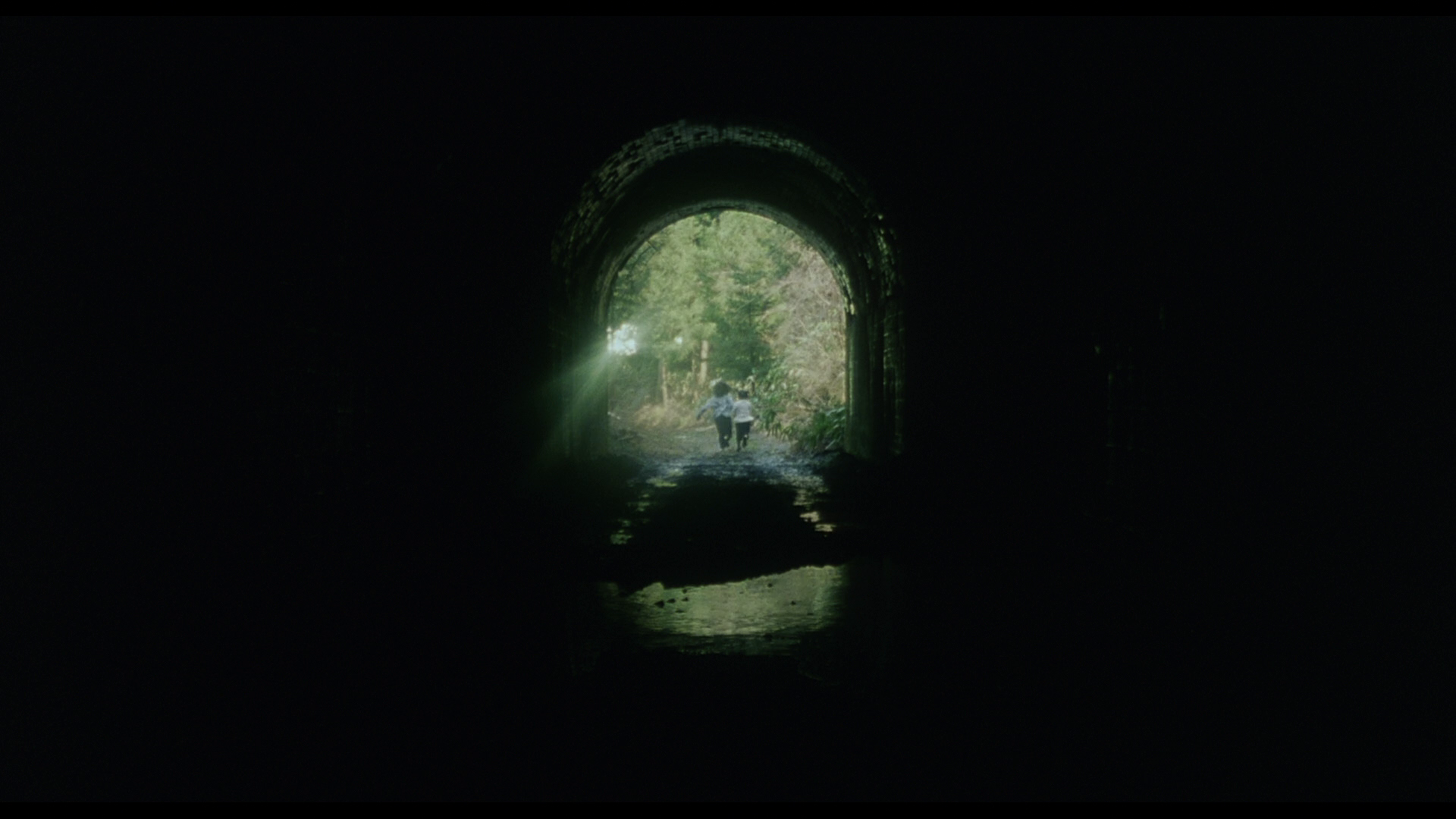Last Updated on April 20, 2021 by rob
Yumiko (Makiko Esumi), a happily married 20-year old woman with a 3-month old baby boy suddenly loses her husband when he is struck by a train one night while walking home along the tracks. Was it an accident or suicide? Nobody knows but after eventually remarrying and relocating with her young son from Osaka to a small fishing port in the north of the country the question continues to haunt Yumiko.
The debut feature of Kore-eda is a satisfying, quietly impressive portrait of loss, memory and renewal. The title, incidentally, appears to translate as ‘Illusion’, which in its central character reeling from an inexplicable tragedy has its own resonances here. Esumi’s understated performance as the widow disconnected from life (she wanders through the film dressed entirely in black) is entirely one with Kore-eda’s style. The director came from documentaries and that straightforward observational style fuses seamlessly with immaculately composed shots whose static, ground-level camera placements – with the actors arranged as if in a tableaux – recalls the work of Yasujiro Ozu.
Yet despite the gloomy subject-matter the film never feels especially bleak or austere. The kindness of Yumiko’s new husband, a meeting with some grizzled, good-natured locals who make their living from fishing, the sight of Yumiko’s little boy playing on the shorefront, all represent the steady reassertion of human life around Yumiko and the wintry setting is a beautifully photographed, almost elemental backdrop for the drama. The film culminates in the question that anyone who’s ever had their life derailed through losing a loved one in tragic circumstances will ask and the answer basically comes down to, ‘When it’s your time, it’s your time’ and who could argue with that?
This is all done without the merest hint of melodrama or soap opera theatrics and I found it extremely rewarding although there’s no question that some viewers will perceive a seemingly inexpressive protagonist, long takes of her performing mundane activities such as cooking and washing up and the deliberate pacing – as being unworthy of their time. I would of course argue that such people are not only entirely wrong but miss the real nature of what’s actually going on here.



